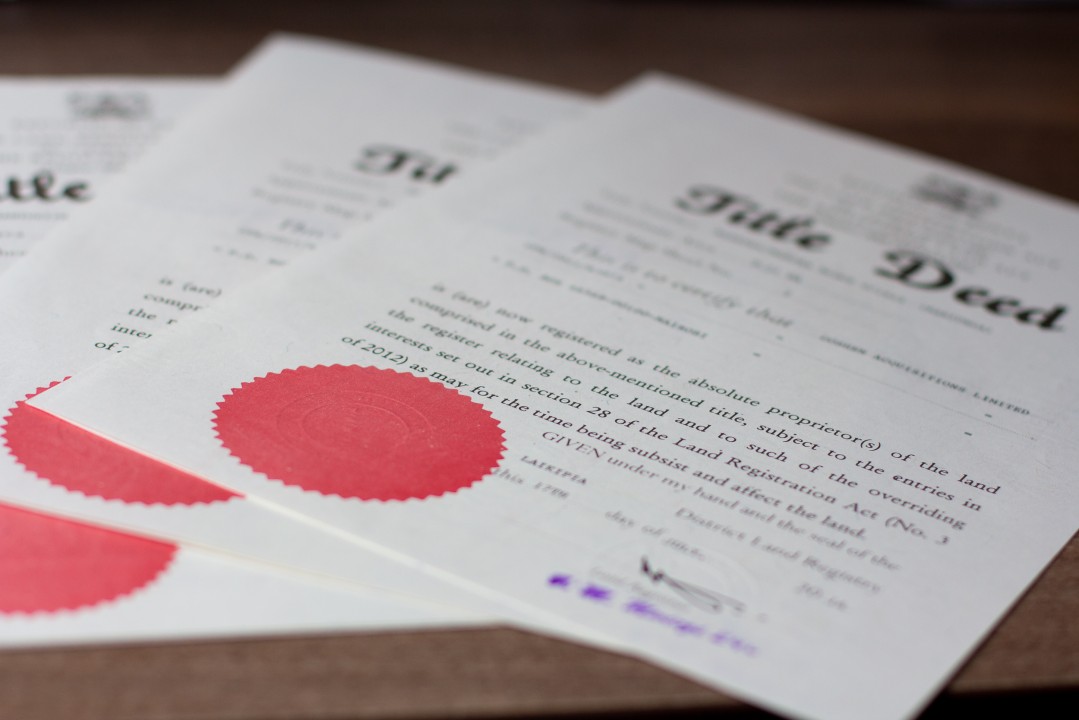Thai Will and Succession
In Thailand, planning for the transfer of assets and property after death is essential to ensure that one’s wishes are honored and legal disputes are minimized. Wills and succession laws provide a framework for individuals to manage the inheritance process, protect family members, and ensure fair distribution of property. Understanding the types of wills and the principles of succession in Thailand is critical for Thai nationals, expatriates, and foreign investors who own assets in the country.
Legal Framework for Wills and Succession in Thailand
The laws governing wills and succession in Thailand are primarily contained in the Civil and Commercial Code (CCC), Book II, Part 8, which sets out the legal requirements for drafting a valid will and the rules for inheritance when a person dies intestate (without a will). Thai law recognizes the freedom of individuals to dispose of their property through a will, subject to certain limitations, including the protection of legally entitled heirs.
Importance of Wills in Thailand
A valid will ensures that a person’s assets are distributed according to their wishes after death, rather than being subject to default intestacy rules. Without a will, property is distributed according to Thai succession law, which may not align with the deceased’s intentions. Benefits of creating a will in Thailand include:
-
Ensuring that heirs and beneficiaries receive their intended shares
-
Minimizing disputes among family members
-
Protecting children, spouses, or dependents
-
Simplifying probate and inheritance procedures
A properly drafted will provides legal certainty, prevents confusion, and can reduce the time and cost of estate administration.
Types of Wills in Thailand
Thai law recognizes several types of wills, each with specific legal requirements. The type of will chosen depends on the circumstances of the testator and the complexity of the estate.
1. Written Will (Holographic Will)
A written will, also known as a holographic will, is a document fully written and signed by the testator. It does not require witnesses but must comply with specific formalities to be valid.
Key features:
-
Must be entirely in the testator’s handwriting
-
Signed and dated by the testator
-
Clearly identify the property and the beneficiaries
Holographic wills are common for individuals who wish to create a simple will without formal notarization. However, because there are no witnesses, the validity of the will can be challenged more easily in court.
2. Notarial Will (Registered Will)
A notarial or registered will is prepared with the assistance of a notary public or an authorized legal officer and registered with the District Office or Ministry of Justice. This type of will provides greater legal certainty and protection against disputes.
Key benefits:
-
Notarization ensures the authenticity of the document
-
Reduces the risk of forgery or misinterpretation
-
Registered with authorities for safe keeping
-
Provides clear evidence in probate proceedings
Notarial wills are preferred for complex estates, international assets, or cases where the testator wants maximum legal protection.
3. Oral Will (Niyom Phon)
An oral will is a will declared verbally by the testator in front of witnesses. Thai law permits oral wills only under strict conditions, such as imminent death.
Requirements include:
-
Declared by the testator to witnesses
-
Must be made in extreme circumstances (e.g., deathbed situations)
-
Limited to simple dispositions of property
-
Witnesses must testify to the validity of the oral will
Oral wills are rarely used due to potential disputes, and courts require strong evidence to uphold such wills.
4. Codicil (Amendment to a Will)
A codicil is an amendment or addition to an existing will. It allows the testator to modify portions of the original will without creating a new document.
Key points:
-
Must comply with the same formalities as the original will
-
Clearly indicate the changes to avoid conflicts
-
Signed and dated by the testator
Codicils are useful for updating beneficiaries, changing property allocations, or addressing new circumstances.
Succession in Thailand
Succession in Thailand can occur testate (with a valid will) or intestate (without a will). Thai law provides specific rules for distributing assets to legal heirs in both cases.
Testate Succession
If a valid will exists, the property is distributed according to the testator’s instructions, subject to the following rules:
-
Legal heirs, such as children, spouse, and parents, are entitled to mandatory portions (reserved portions) of the estate under Thai law.
-
The remaining property can be freely distributed according to the testator’s wishes.
Creating a testate succession ensures the testator’s intentions are legally recognized and reduces disputes among heirs.
Intestate Succession
If a person dies without a valid will, their estate is distributed according to Thai intestacy laws. The Civil and Commercial Code specifies the order of inheritance as follows:
-
Spouse: Shares equally with children or inherits entirely if no children exist.
-
Children and descendants: Receive equal shares among themselves.
-
Parents and ascendants: Inherit if no spouse or children exist.
-
Siblings and relatives: Inherit in the absence of closer heirs.
-
State: If no heirs exist, the estate passes to the government.
Intestate succession can lead to disputes, particularly in blended families or situations involving foreign nationals, highlighting the importance of creating a will.
Foreigners and Inheritance in Thailand
Foreigners owning property in Thailand should pay special attention to wills and succession. Thai law recognizes foreign wills, but property rights may be subject to restrictions, particularly regarding land ownership. Foreigners are advised to:
-
Draft a Thai will for assets in Thailand
-
Ensure compliance with Thai legal formalities
-
Seek notarial assistance for recognition and enforcement
This approach ensures smooth inheritance procedures and reduces potential legal conflicts.
Probate and Administration of Estates
After death, the estate must undergo probate or administration. A valid will simplifies this process by providing clear instructions and reducing the time needed for court approvals. Without a will, the court must identify heirs, determine shares, and oversee distribution according to intestate succession laws.
Probate procedures in Thailand involve:
-
Verification of the will’s validity
-
Appointment of an executor or administrator
-
Settlement of debts and taxes
-
Distribution of assets to heirs
Proper planning with a will ensures that heirs receive their inheritance promptly and fairly.
Conclusion
Wills and succession planning are essential in Thailand to ensure the orderly transfer of assets, protection of heirs, and minimization of disputes. The Thai legal system recognizes several types of wills—written, notarial, oral, and codicil—each suited for different circumstances. Succession can occur testate or intestate, but having a valid will provides clarity, legal certainty, and protection for both Thai nationals and foreigners.
By understanding the types of Thai wills and succession laws, individuals can plan effectively, safeguard their estate, and ensure that their property is distributed according to their wishes. Engaging legal professionals or notaries to draft, register, and manage wills is strongly recommended, especially for complex estates or cross-border assets. Proper planning not only protects the interests of heirs but also contributes to the overall efficiency and fairness of the Thai legal system.










